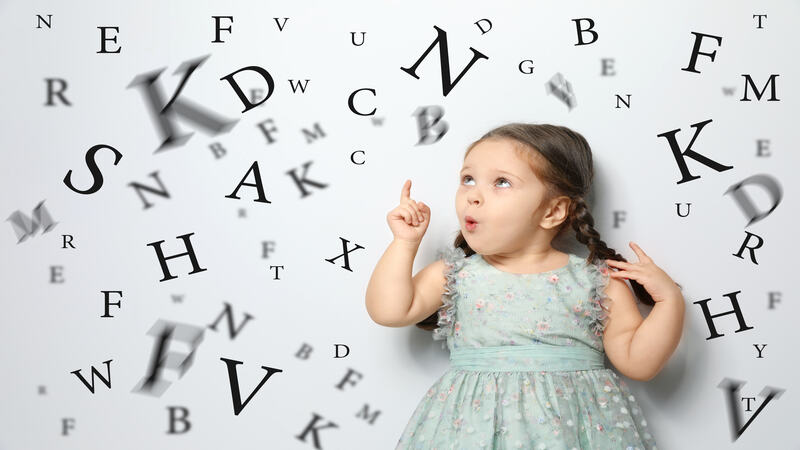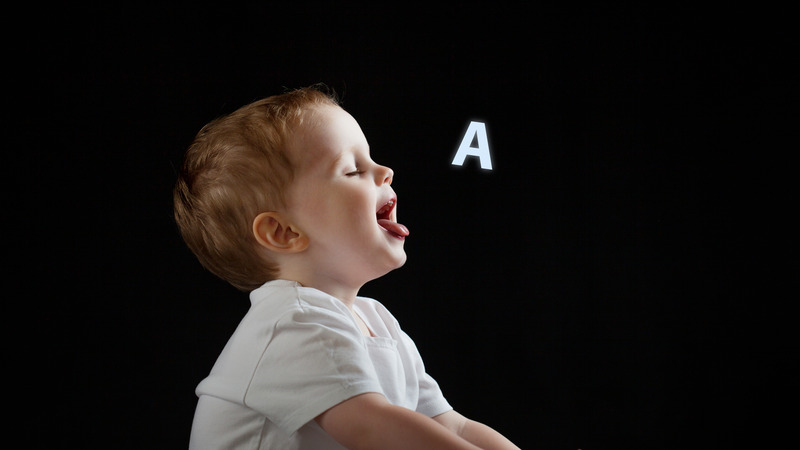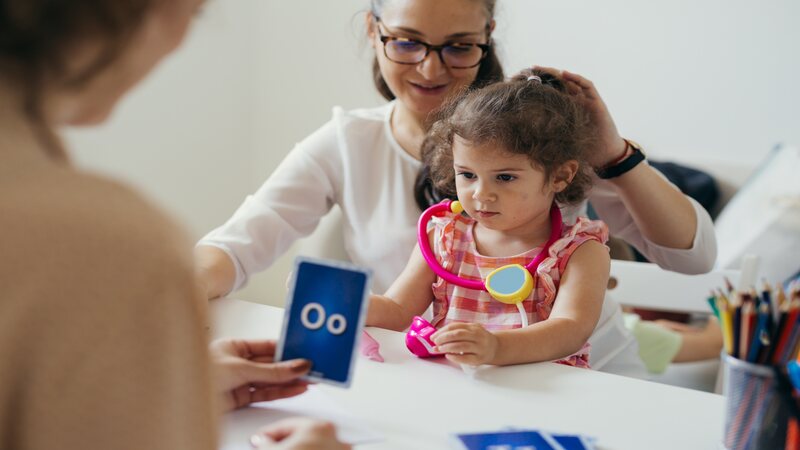
A baby learning to say new words can be a delight to watch and hear. Parents and all elders adore the way the tiny mouths twist and turn to make new words, repeat what we say and just try to communicate. Speech and language development milestones are important milestones that babies need to cross.
Have you seen parents complain about how their baby is yet to say even a few simple words? Some babies start speaking early, while some can take a long time. While a slight delay is okay, sometimes a delay in this important milestone can be a warning about an underlying issue.
In This Article
When Do Babies Start Talking?

So, when does a baby start talking? Let’s see how this development happens at different stages.
By The End Of 18 Months
By this age, most babies can
- Recognize the names of people around them
- Identify words you use regularly – like body parts, objects, or food items
- Follow directions or understand what you are telling them
- Say a few single-syllable words
By The End Of 24 Months
A 2-year-old baby can communicate better. Most babies by this stage can:
- Use words to communicate their needs
- String 2 or 3 words together
- Understand simple questions and instructions
- Use a mix of words and gestures well enough to communicate with people around them
- Express themselves to their primary caregivers and respond to them too
By The End Of 30 Months
By this time, most children will start talking and communicating without much help. You can expect your 30-month-old to:
1. Speak Small Sentences
They won’t be grammatically correct, nor will they be in a good coherent flow. Babies at this age use disjointed words and string them into a sentence. Most people can understand them but sometimes the primary caregiver might have to intervene and help others understand what the baby is communicating.
2. Use Words Used Regularly
They will start using those words they hear regularly. They may not pronounce it properly, but their primary caregivers can understand what they are communicating.
3. Identify Items, Pictures, And Body Parts, And Use The Appropriate Terms
At this age, they can point to items in their books and use the appropriate terms that are taught to them.
4. Have a Conversation With Their Primary Caregivers.
Since their words may not be very clear or coherent, they can communicate well only with those who understand their speech. These are usually the primary caregivers. Many children start playschool by this age. Most children at this age can express their needs, and emotions, ask for things and respond.
From here on, your baby will start picking up words, dialect as well as tones. They will learn to use them to communicate effectively. It can be quite amusing to see how your baby uses tones and words to express themselves. They will start copying and mimicking the language used around them. This is the right time to start being cautious of the words you use and how you talk around your child.
When Should You Consider Seeing A Doctor?

If your child is unable to communicate as mentioned above, it can be quite concerning. Especially when people around you start asking why your baby has not started speaking yet. Remember, each child is different, and they need their own time to cross milestones.
That being said, you cannot just wait for your child to start speaking. If your baby does not show any signs of speaking or picking up words by the time they are 2 years old, you need to consult your pediatrician. If they have not been tracking your child’s development so far, they will check various aspects to rule out any issues.
In the meantime, keep talking to your baby. Get down to their eye level, enunciate well and speak slowly. Teach them one syllable at a time. It will be easier for them to pick up words this way.
Speech development is an important milestone for babies. Not crossing this in time can indicate a developmental delay. It is always advisable to check with your doctor and rule out issues during your regular visits. Identifying such issues at the earliest can help come up with feasible solutions.
FAQ’s
1. Can I Teach my Baby to Talk Early?
You can teach your baby to talk and use various words. However, if you are trying to teach them to talk, it may not be successful if your baby is not ready yet. Talking to them at their eye level while enunciating the words clearly can help them pick words faster.
2. Does a Delay in Speech Development Indicate Autism?
Developmental delays are a main symptom of autism. If your baby is late in achieving other milestones, it can indicate autism or some other chronic issue. It is always better to get it checked.
3. How do I Know if my Child Has Speech Delay?
Some babies just start talking a little early. If your baby shows no signs of babbling or mimicking, you can check with your pediatrician before going to a specialist.

